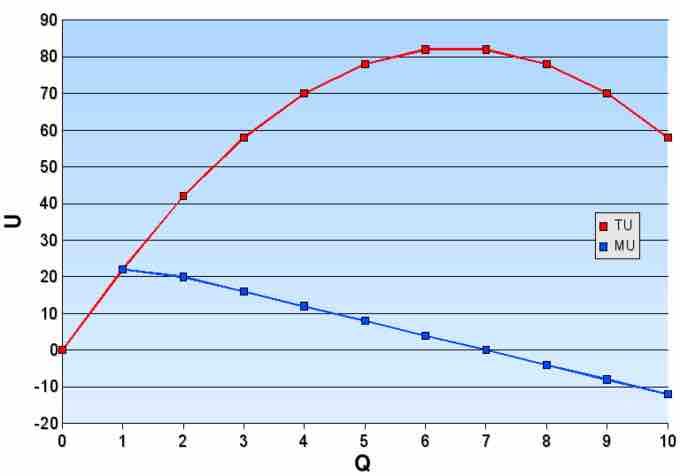The principle of diminishing marginal utility states that as an individual consumes more of a good, the marginal benefit of each additional unit of that good decreases.
The concept of diminishing marginal utility is easy to understand since there are numerous examples of it in everyday life. Imagine it is a hot summer day and you are hungry, so you get some ice cream. The first bite is great and so is the second. But with each spoonful, your hunger decreases and you become cooler. So while the last bite might still be good, it is probably not as satisfying as the first. This is a simple illustration of diminishing marginal utility .

Total and marginal utility
As you can see in the chart, the more of a good you consume, the further its marginal utility decreases.
Negative Marginal Utility
While there are some circumstances where there will always be some marginal utility to producing or consuming more of a good, there are also circumstances where marginal utility can become negative. For example, while some antibiotics may be useful in curing diseases. However, if you take too much you can become sick or resistant to the drugs which could lead to future illnesses being incurable. So it is important to remember that "diminishing" does not necessarily mean to zero; you can have too much of a good thing.
Exceptions to the General Rule
This concept suggests a uniform steady decline of marginal utility, but that may not always be the case. There can be situations in which one might gain more utility from consuming a later unit of a good than from earlier consumption. If you are going on a date, for example, getting one ticket to a concert will have some utility but the second arguably has more because it enhances the value of the first.
Generally these exceptions occur when what is being consumed is a component of a larger whole. While utility may increase for a period, there is usually a "tipping point" where afterwards marginal utility decreases. Getting a third ticket for your date will have low marginal utility than the second.